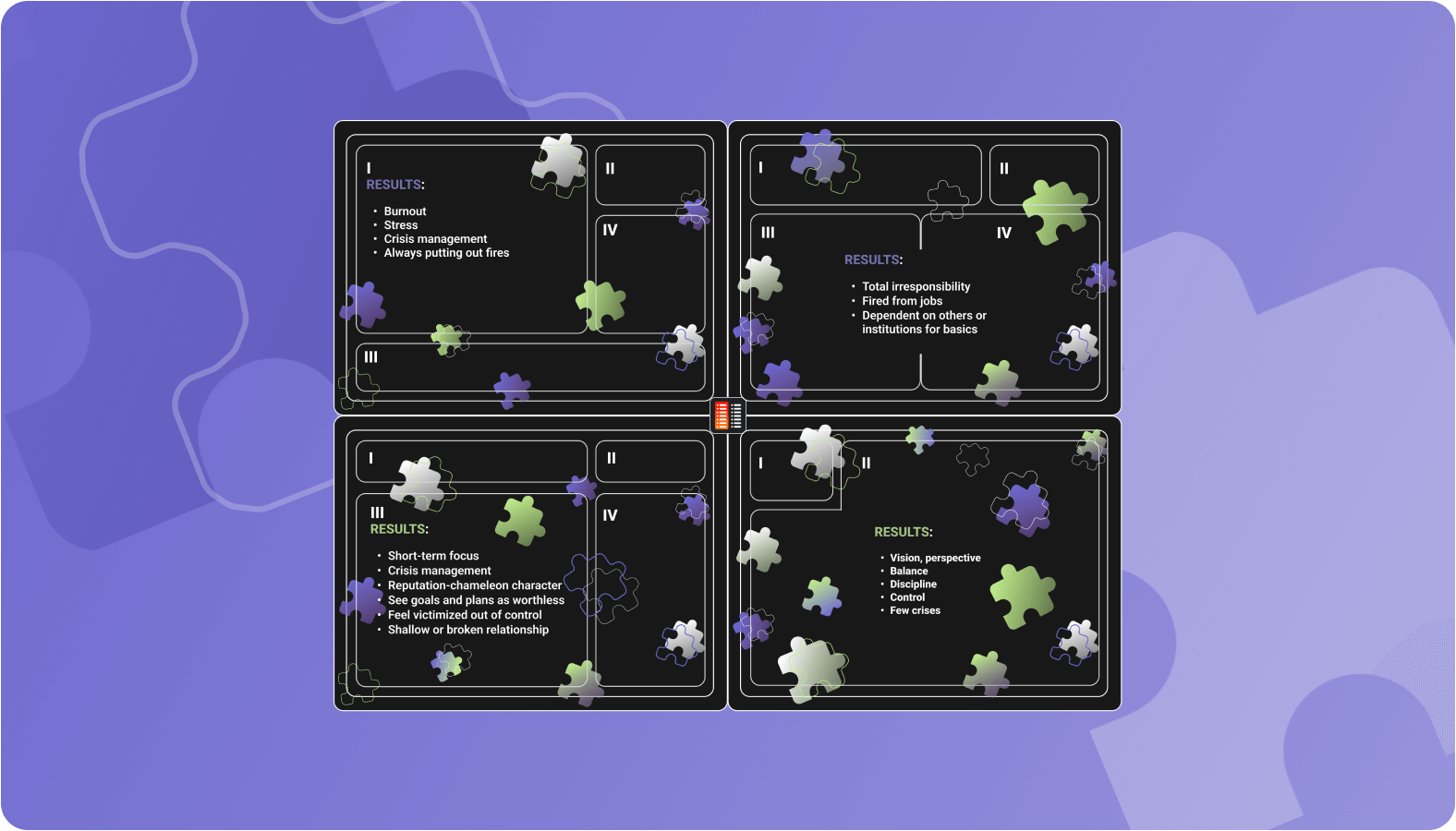You Will be in Hot Water if You Miss this Guide to Finding out The Deep sence of Quadrants
The genius of literature’s phenomenon Gothe says: “Things which matter most must never be at the mercy of things which matter least”. As leaders of our own success, we must understand the concept, explore the essential difference between the Eisenhower quadrants, and determine for ourselves the cause of psychology’s misplaced prioritization. What is the matter of procrastination? How to avoid it and not to postpone important, but not urgent, things then as if for a rainy day?
We are ready to start our trip to the productivity from the road, full of green lights for developing your mind of self-management.
What one thing in your business or professional life would bring similar results?
The essential focus of the preserving and enhancing relationships and accomplishing results can be captured in the time management matrix or the Eisenhower matrix. Mainly, we spend time in one of four ways.
As you can see, the two factors that define an activity are URGENT and IMPORTANT.
TOP-PRIORITY
Urgent means it requires immediate attention. Urgent things act on us. Facing the music most of peole can not controll the plan or a strategy of their daily grind because of the working “from call to call”.
A phone call is urgent. A lot of people can not stand the thought of just allowing the phone to ring more than on the spot. You could spend hours preparing materials, you could get all dressed up and travel to a person’s office to discuss a particular issue, but if the phone were to ring while you were there, it would generally take precedence over your personal visit. It would interrupt your scheduale for a little time but there is no doubt that it is highly difficult to take to your heels after a loop of unnecessary actions and movements. If you were to phone someone, there aren’t many people who would say, “I will get to you in 15 minutes; just hold.” But most people would probably let you wait in an office for at least that long while they completed a telephone conversation with someone else.
Urgent matters are usually visible. They press on us; they insist on action. They’re often popular with others. There are usually right in front of us. And often they are pleasant, easy, fun to do. But so often they are unimportant! Unfourtunately, our daily productivity’s mood depend on urgent category.
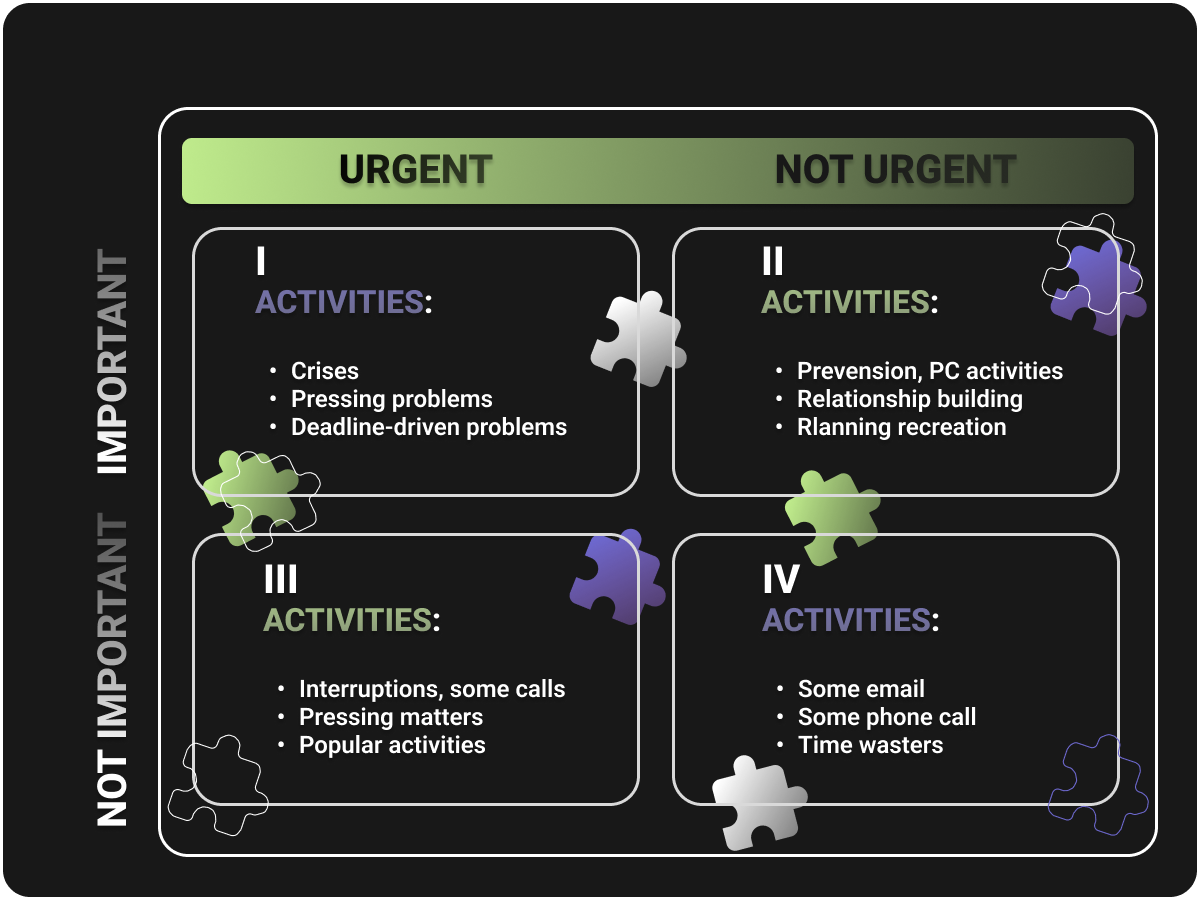
IMPORTANT
Importance, on the other hand, has to do with results and achievements. If something is sagnificant, it contributes to your mission, your values, your high priority goals.
We react to urgent matters. Important matters that are not urgent require more initiative, more proactivity and more energetic desire. We must act to get the target of opportunity, to make things happen. If we do not begin with the end in mind, if we do not have a clear idea of what is important, of the results we desire in our lives, we are easily diverted into responding to the urgent.
Look for a moment at the four quadrants in the time management matrix or Eisenhower matrix that is given to use in our best habit tracker Rizen App, too.
QUADRANT I is both urgent and important
It deals with essential results that require immediate attention. “Crises” or “problems.” We all have some QI activities in our lives. But Quadrant I consumes many people. They are crisis managers, problem-minded people, deadline-driven producers. As long as you focus on QI, it keeps getting bigger and bigger until it dominates you, until it ruins your personality’s mental health and your truly meaning of success. It is like the pounding surf. A huge problem comes and knocks you down and you’re wiped out. You struggle back up only to face another one that knocks you down and slams you to the ground.
Some people are literally beaten up by problems all day every day. The only relief they have is in escaping to the not important, not urgent activities of Quadrant IV.
Finally, when you look at their total matrix, 90 percent of their time is in Quadrant I and most of the remaining 10 percent is in Quadrant IV, with only negligible attention paid to Quadrants II and III. That’s how people who manage their lives by crisis live.
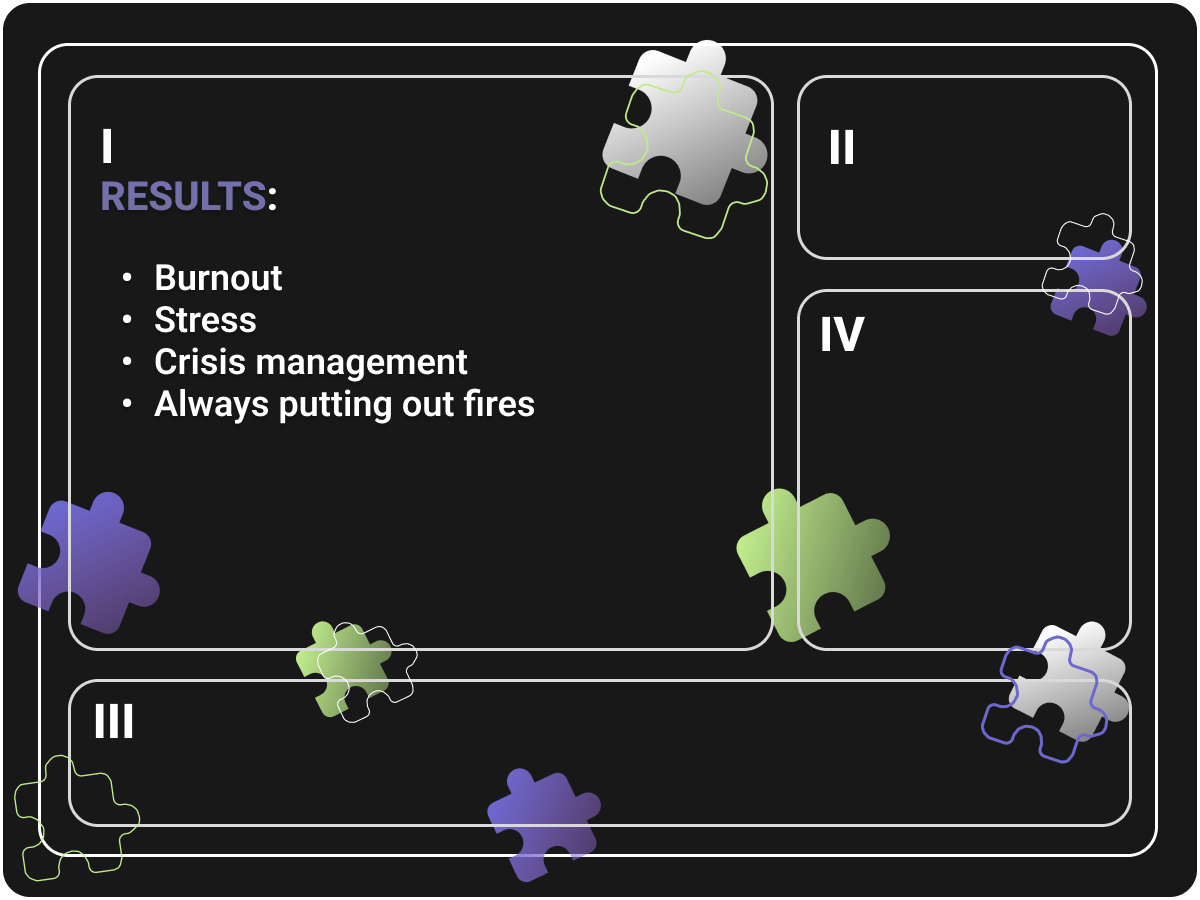
Such kind of people do live with an elevated level of anxiety and expectation. Due to urgent matters their own spiritual growth is comparatively small with the increase in schedule of duties.
There are other people who spend a great deal of time in “urgent, but not important” Quadrant III, thinking they are in Quadrant I. They spend most of their time reacting to things that are urgent, assuming they are also important. But the reality is that the urgency of these matters is often based on the priorities and expectations of others.
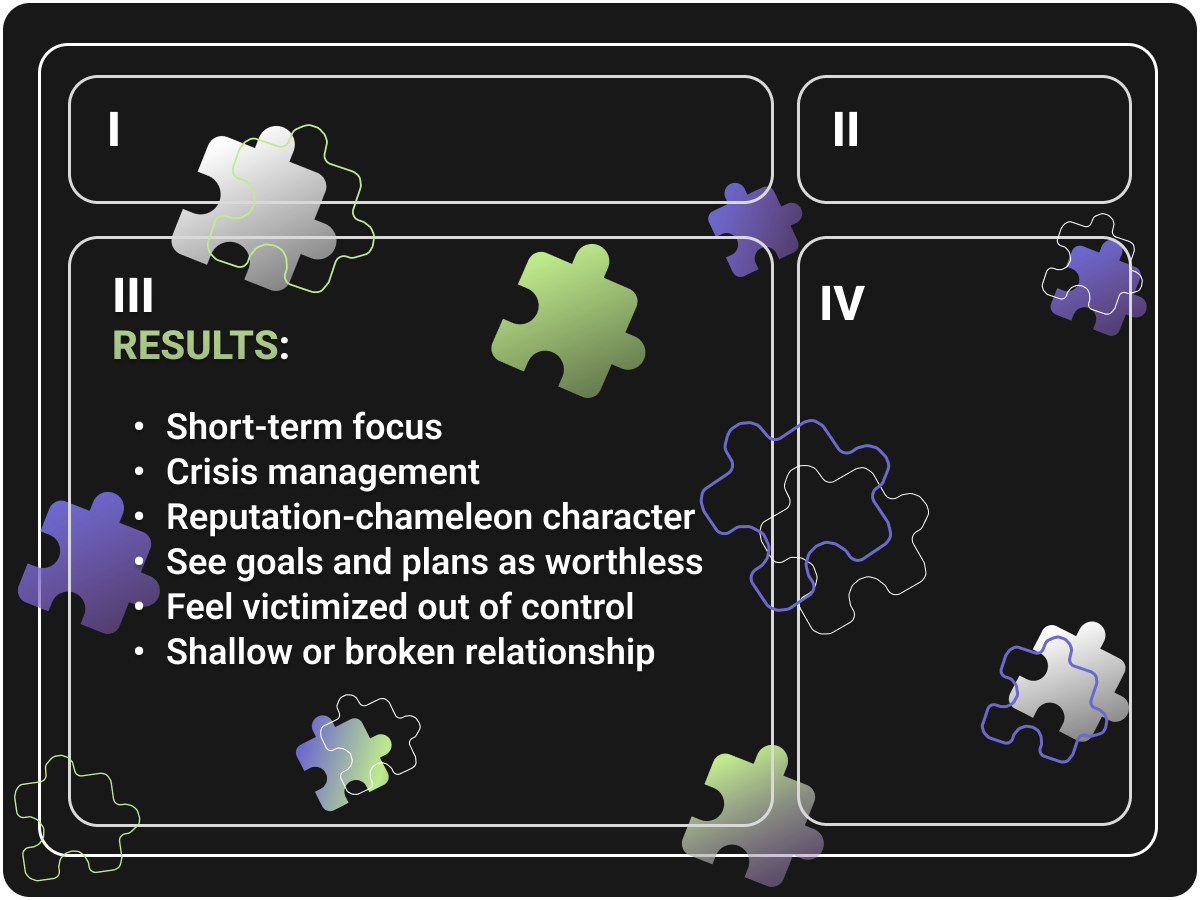
People who spend time almost exclusively in Quadrants III and IV basically lead irresponsible lives.
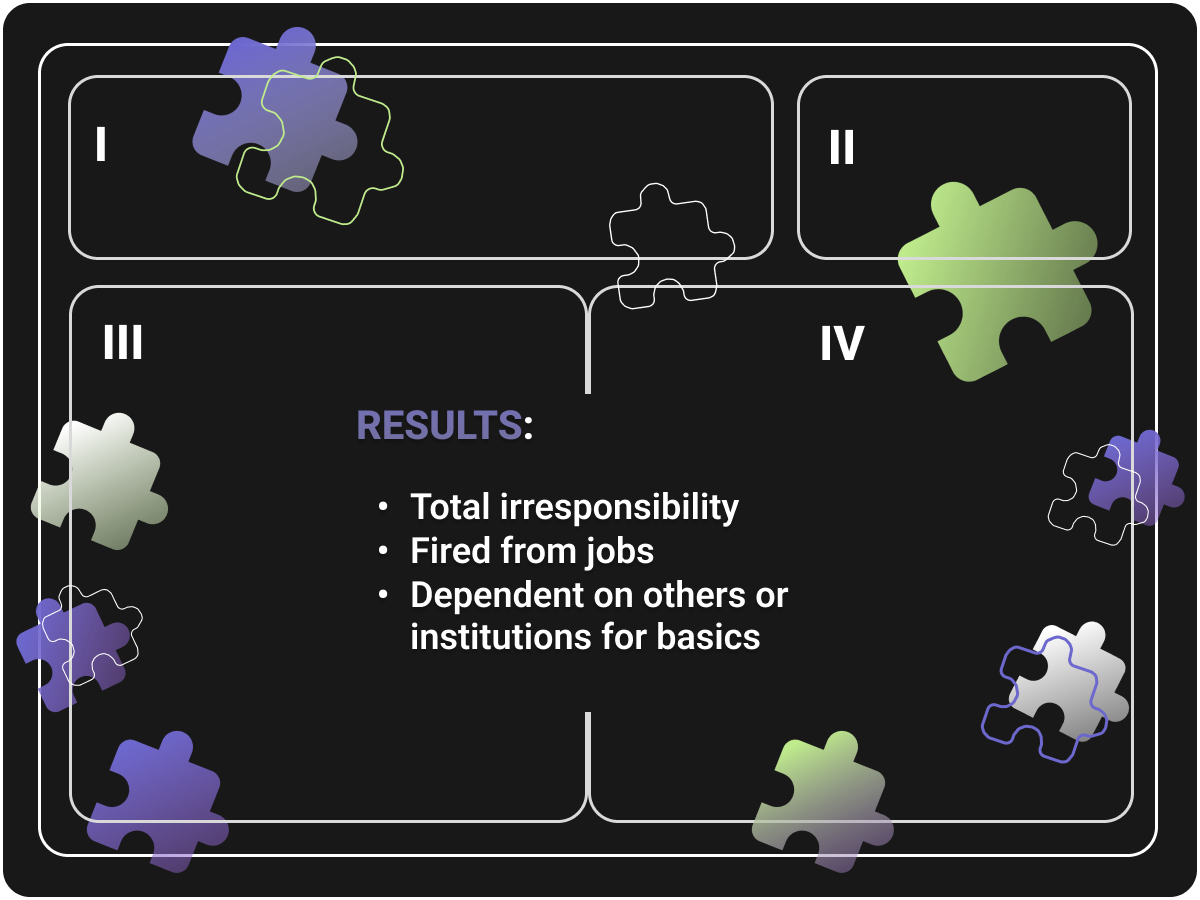
– – –
Effective people stay out of Quadrants III and IV because, urgent or not, they aren’t important. They also shrink Quadrant I down to size by spending more time in Quadrant II. Quadrant II is the heart of effective personal management. It deals with things that are not urgent, but are important. It deals with things like building relationships, writing a personal mission statement, long-range planning, exercising, preventive maintenance, preparation—all those things we know we need to do, but somehow seldom get around to doing, because they are not urgent.
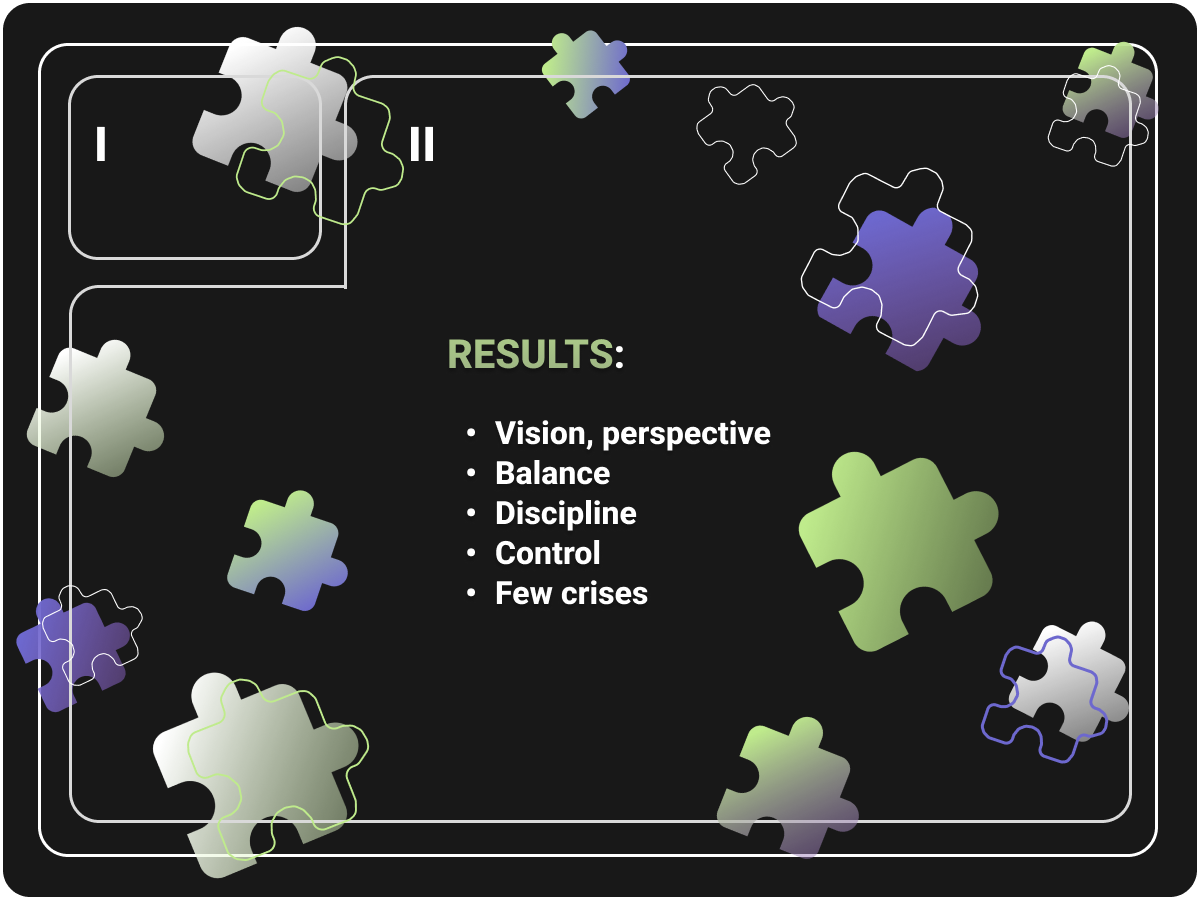
Effective people are not problem-minded; they are opportunity-minded. They feed opportunities and starve problems; think preventively; have genuine Quadrant I crises and emergencies that require their immediate attention, but the number is comparatively small. Focusing on the important, but not urgent, high leverage capacity-building activities of Quadrant II is the clue of a life principle. With the time management matrix in mind, take a moment now and consider how you answered the questions at the beginning of this chapter.
What quadrant do they fit in? Are they important? Are they urgent?
How to recognize QUADRANT II?
They are obviously important, deeply important, but not urgent. And because they aren’t urgent, you don’t do them. Now look again at the nature of those questions: What one thing could you do in your personal and professional life that, if you did it on a regular basis, would make a tremendous positive difference in your life? Quadrant II activities have that kind of impact. Our effectiveness takes quantum leaps when we do them.
Whether you are a student at the university, a worker in an assembly line, a homemaker, fashion designer, or president of a company, I believe that if you were to ask what lies in Quadrant II and cultivate the proactivity to go after it, you would find the same results.
Your effectiveness would increase dramatically. Your crises and problems would shrink to manageable proportions because you would be thinking ahead, working on the roots, doing the preventive things that keep situations from developing into crises in the first place.
Contemporary psychologists and productive and ambitious managers are guided by the principle of Pareto – «20% of the effort gives 80% of the result, and the remaining 80% of the effort – only 20% of the result».
We sincerely believe that you will be able to easily learn the craft of balance and prioritization with our course of articles about the new feature from Rizen App.
Stay with Rizen! Do not be a Randomizer!

